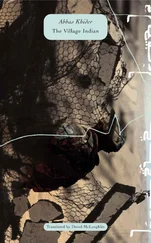József Eötvös - The Village Notary - A Romance of Hungarian Life
Здесь есть возможность читать онлайн «József Eötvös - The Village Notary - A Romance of Hungarian Life» — ознакомительный отрывок электронной книги совершенно бесплатно, а после прочтения отрывка купить полную версию. В некоторых случаях можно слушать аудио, скачать через торрент в формате fb2 и присутствует краткое содержание. Жанр: foreign_antique, foreign_prose, на английском языке. Описание произведения, (предисловие) а так же отзывы посетителей доступны на портале библиотеки ЛибКат.
- Название:The Village Notary: A Romance of Hungarian Life
- Автор:
- Жанр:
- Год:неизвестен
- ISBN:нет данных
- Рейтинг книги:3 / 5. Голосов: 1
-
Избранное:Добавить в избранное
- Отзывы:
-
Ваша оценка:
- 60
- 1
- 2
- 3
- 4
- 5
The Village Notary: A Romance of Hungarian Life: краткое содержание, описание и аннотация
Предлагаем к чтению аннотацию, описание, краткое содержание или предисловие (зависит от того, что написал сам автор книги «The Village Notary: A Romance of Hungarian Life»). Если вы не нашли необходимую информацию о книге — напишите в комментариях, мы постараемся отыскать её.
The Village Notary: A Romance of Hungarian Life — читать онлайн ознакомительный отрывок
Ниже представлен текст книги, разбитый по страницам. Система сохранения места последней прочитанной страницы, позволяет с удобством читать онлайн бесплатно книгу «The Village Notary: A Romance of Hungarian Life», без необходимости каждый раз заново искать на чём Вы остановились. Поставьте закладку, и сможете в любой момент перейти на страницу, на которой закончили чтение.
Интервал:
Закладка:
We are sure to meet Kenihazy again, and we will not therefore expatiate on his blue jacket, which once upon a time boasted of a dozen buttons, – or his waistcoat, which owes its present colour to the sun, – or the time-honoured neckcloth, which gave the wearer a hanging look – and much less on his grey pantaloons. We mention his round hat and his boots and spurs merely in order to say that Kenihazy is the very picture of seedy gentility; and, having said thus much, we turn to a certain prejudice, which, though luckily obsolete in life, is generally accepted in theory. The prevailing opinion of the venality of judges is, I protest, utterly groundless. It has no foundation but those feelings of envy, which low people are wont to indulge in with respect to their betters.
Not to mention the fact, that according to our laws – and according to laws of which the boldest innovator dare not say that they are obsolete, inasmuch as their antiquity makes them venerable – our judges are allowed to accept presents: we need only point out the high estimation in which gratitude was held by all nations, both ancient and modern. To be good, a man ought to be grateful; and is it not therefore very wrong to insist upon a judge showing himself insensible to kindness? We are told we ought to do by others as we wish them to act by ourselves. Supposing now A., the judge, to be in the place of him from whom he accepts a present; that is to say, suppose A., the judge, were to plead a cause, about the justice of which he entertained some modest doubts, would not A. be very happy if the learned gentleman who sits on his case were to take a present and pronounce judgment accordingly? – and this being the case, ought not A. to deal with his fellows as he wishes to be dealt with by them?
It is a legal maxim that the judge ought to consider and weigh the proofs which are preferred in the suit. Supposing now the proofs of the claimant and those of the defendant are of equal merit, or nearly so, and supposing the claimant adds a few bank-notes to the legal documents, without the adverse party making a rejoinder to a plea of such universal power; what, in the name of fair dealing, can the judge do, but give judgment for the best pleader?
Returning to the party on the hill, we find Kalman eagerly disputing with Vandory. Their conversation was, of course, of the merits of hare-hunting. Tengelyi and Akosh took no part in it; – the former because he protested that the subject was one about which on consideration there could be but one opinion, while every body would at times act in opposition to that opinion; and Akosh declined to second his friend's argument, because his mind and heart were hunting on another track. He inquired of old Tengelyi how his daughter Vilma was, and his blushing face showed that he thought more of Vilma than of all the hares in the world. Tengelyi gave him but short answers, and even those reluctantly. Paul Skinner and his clerk conversed about the election, and of the means of gaining the public confidence. The names of certain villages occurred frequently in their interesting dialogue; and when Mr. Skinner, brightening up, murmured, "Ten butts, one dollar," Kenihazy was heard to respond with, "That will do to keep us in!" and, giving vent to his satisfaction, the worthy clerk, knocking his spurs together, blew an immense column of smoke from his pipe. In fact, he smoked with such violence, that one might have likened him to a steam-engine, but for the indecency of comparing a vulgar working machine with an Hungarian gentleman.
The party were about to leave, when their attention was suddenly directed to something which was going on in the plain below. Two men on horseback, and one on foot, were seen approaching over the heath; and it was remarked that the individual, whose means of locomotion were so unequally matched with those of his companions, walked in front of the horses, and sometimes even between them. The servants of the party, nay, the very justice, were in doubt as to who or what they were; whether Pandurs or robbers, for at that distance it was quite impossible to make out the difference, which doubtlessly does exist, between brigands and the familiars of the Hungarian Hermandad. On a nearer approach, however, all doubts were removed by the considerate manner in which the cavaliers sought to divert the attention of the pedestrian from the length of the way, by beating him; and it was at once clear that these were servants of the county escorting a prisoner, whom they were subjecting to the customary introductory proceedings.
"Let somebody ride down to the Pandurs and tell them to bring the culprit to this place," said Mr. Skinner to his clerk. "I'm sure he is one of Viola's gang; his case ought to be tried by a court-martial. 2 2 See Note I .
What did I tell you?" he continued, turning to Akosh, "I was sure we should catch the birds; and though I may not be re-elected, I mean at least to deserve the confidence of the county by hanging a parcel of the beggars on this hill."
"Not before you've caught them, and I doubt whether you ever will. Tengelyi says it is next to impossible to find an honest man. Now your example proves that nothing is more easy, because hitherto you've caught none but honest men; and I would almost swear," added Akosh, "that Viola's comrade, the mighty outlaw whom your people are bringing us, and to whose hanging you mean to treat the county, – that other Jaromir and Angyalbandi 3 3 See Note II .
, – is no less a personage than our old gipsy."
Upon this everybody recognised old Peti, and there was a general burst of laughter.
"Poor Peti!" cried Akosh with a great show of sentiment. "The country cannot boast of a man more gifted, more useful. When a house is built, it is he who makes the bricks; when a lock is out of order, he puts it to rights. He is a born blessing to property. He shoes your horse and fastens your spurs; there is not a wedding but he plays the first fiddle at it; nay, he is useful to the last moment of your life, for he digs your grave. It is said of him that, in his youth, he served the state as a hangman. Truly, truly, the world is ungrateful to great men, but still more so to useful men!"
"I don't see anything to laugh at," said Mr. Skinner, looking still more solemn and black than was his wont. "Possibly there is a case for a 'statarium.' As for me, I don't think it is your old gipsy, but if – "
" If it is not Peti," cried Akosh, laughing; "if that fellow dares to sport a white skin, there is not, of course, any obstacle to his being hanged."
"Enough of this! who says the fellow yonder is not a gipsy? but I say, who knows whether that old rascal, whom you mistake for an innocent musician – ?"
"Has not masqueraded as a gipsy all along! But you will bring the truth to light. You, Skinner, will skin the culprit. You'll strip him of his brown hide; you'll show the world that Viola the great robber is identical with Peti the gipsy."
"Don't make a fool of me , sir! I won't suffer it!" cried the justice, whose pipe had gone out with the excess of his rage. "Paul Skinner is not the man whom you can fool, I can tell you! But never mind; who knows what that fellow Peti has done all his life besides brick-making? and I apprehend that if he set out with being a hangman, he'll end with being a hanged man."
This said, the justice lighted his pipe, muttering his imprecations against untimely jokes and bad tinder.
Poor Peti had meanwhile proceeded to a distance of five hundred yards from the Turk's Hill; and so great was the good man's natural politeness, that even at that distance he bowed to the party on the hill. Little did he know the intensity of Paul Skinner's rage; but the first words of the worthy magistrate showed him that it was an evil hour, indeed, in which he had come before his judge.
Читать дальшеИнтервал:
Закладка:
Похожие книги на «The Village Notary: A Romance of Hungarian Life»
Представляем Вашему вниманию похожие книги на «The Village Notary: A Romance of Hungarian Life» списком для выбора. Мы отобрали схожую по названию и смыслу литературу в надежде предоставить читателям больше вариантов отыскать новые, интересные, ещё непрочитанные произведения.
Обсуждение, отзывы о книге «The Village Notary: A Romance of Hungarian Life» и просто собственные мнения читателей. Оставьте ваши комментарии, напишите, что Вы думаете о произведении, его смысле или главных героях. Укажите что конкретно понравилось, а что нет, и почему Вы так считаете.












